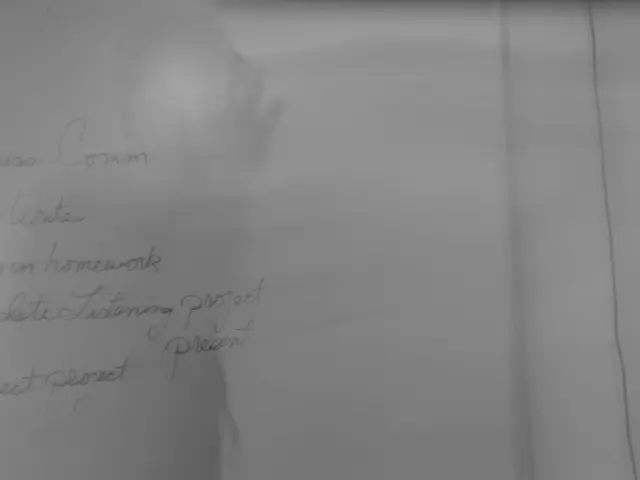Trump suggests imminent agreement to avert military confrontation with Iran.
Fresh Take:
Here's the lowdown on the ongoing dance between the US and Iran, with Trump's recent Middle East tour shedding some light on the situation. In Qatar, ol' POTUS made a bold statement, claiming, "We ain't gonna create atomic shit in Iran." He hinted a potential deal could be on the horizon without resorting to military action. His remarks sent oil prices plummeting, thanks to the hope of a nuclear deal letting Iranian exports back on the market.
The US-Iran negotiations have seen four rounds so far, with Trump's administration trying to dodge military action by Israel while maintaining its "maximum pressure" campaign. Ayatollah Ali Khamenei's adviser, Ali Shamkhani, told NBC News that Iran could give up its highly enriched uranium as part of a deal. In return, the States would lift sanctions, but it's unclear if these remarks are the ones Trump was referring to.
Iran's Foreign Minister Abbas Araghchi mentioned that no formal proposal had been received from the States yet, but if sanctions were lifted, Iran might build trust and open its books on its nuclear program. On the other side of the globe, UAE President Sheikh Mohamed bin Zayed announced a whopping $1.4 trillion investment plan for the States over the next ten years, touching on tech, AI, and energy sectors.
Moving on, Trump's visit to the UAE witnessed revelations about an upcoming AI and tech partnership between the States and the UAE. The Gulf nation is looking to AI to diversify its oil-reliant economy. However, that ambition relies on access to advanced US technologies like AI chips, something the UAE president's brother and intelligence chief Sheikh Tahnoon bin Zayed lobbied for in Washington.
Trump estimated his record tour could rake in between $3.5 trillion and $4 trillion. Notably, he boasted about an impressive $200 billion deal for Boeing aircraft from Qatar Airways. Saudi Arabia promised its own $600 billion, including a massive US weapons purchase.
However, the Gulf leaders' generosity hasn't escaped criticism. Opponents accused Trump of corruption when Qatar offered him a luxury aircraft ahead of his visit. Trump has overlooked human rights concerns throughout his tour, a notable departure from Biden's stance. Biden had initially promised to shun Saudi Arabia's Crown Prince due to US intelligence findings linking him to the brutal murder of Saudi dissident Jamal Khashoggi.
Sources:1. AFP, 2025.2. Reuters, 2025.3. Associated Press, 2025.4. The New York Times, 2025.
Insights:
- The US and Iran are in the fourth round of negotiations for a potential nuclear deal, with progress being made but tensions remaining.
- If a nuclear deal is reached, Iran's oil exports could significantly increase, potentially lowering global oil prices. Conversely, if the deal fails and snapback sanctions are imposed, Iranian oil exports could remain constrained, supporting higher oil prices.
- The outcome of these negotiations by mid-2025 will play a crucial role in the stability of global oil prices in the near term.
- The US administration has been cautious about involving Israel in military action regarding the ongoing US-Iran negotiations.
- The United States is contemplating the possibility of relaxing sanctions on Iran in exchange for Iran's concessions on its nuclear program.
- Iran's Foreign Minister Abbas Araghchi mentioned that Iran might consider opening its books on its nuclear program if sanctions are lifted.
- The United Arab Emirates (UAE) has planned an investment of $1.4 trillion in the US over the next decade, focusing on technology, artificial intelligence, and energy sectors.
- The UAE is keen on acquiring advanced US technologies like AI chips to aid in the diversification of its economy, which is heavily reliant on oil.
- The US-UAE partnership could see advancements in artificial intelligence and technology, with potential implications for various industries such as finance, real-estate, data-and-cloud-computing, and business.
- During Trump's Middle East tour, he failed to prioritize human rights concerns, a departure from Biden's stance on these issues.
- The global news landscape has seen discussions around politics, policy-and-legislation, war-and-conflicts, and their potential impacts on industries ranging from energy to technology, as well as finance and business.








